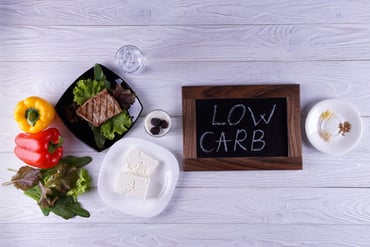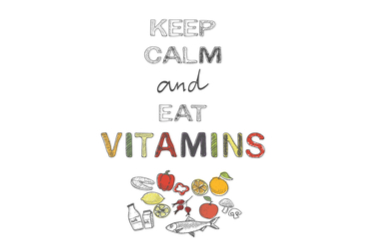Get the Facts on Protein: Sports Nutrition
Whether you are a professional atheletes or someone who regularly does exercise, eating well can improve your performance and help you recover quickly for your next workout. Eating a good diet can help provide the energy you need to finish a marathon, a casual football pick-up game, or a tennis tournament.
The ideal diet for an athlete is not very different from the diet recommended for any healthy person. However, there’s no “one size fits all” and the amount of each food group you will need depends on the type of sports you do, the intensity and the frequency of the training/activity you do.
Protein
Protein is an essential nutrient, which is important for building and maintaining muscle. Protein can also be used as an energy by the body, but only after carbohydrates have been depleted in your body storage.
An average healthy adults would need about 1 – 1.2g/kg/day. For a person that weighs 60 kg, that would mean that you would need about 60-72g of protein everyday.
However, if you exercise regularly and intensely, your protein needs are obviously higher than average. If you do strength or endurance training at least 3 times/week, your protein needs could be as much as 1.5 – 2 times this level. For a person that weighs 60kg, that equals up to 90-120g of protein per day. (“Sports Nutrition (Adult)”, 2017)
It is also a myth that a high-protein diet can promote muscle growth. It is important to remember that:
1) Only strength training and exercise will change muscle. (Eating a bunch of chicken breast everyday doesn’t automatically give you more muscle)
2) Professional athletes need only a little bit of extra protein to support muscle growth. This can easily be met by increasing the about of total calories by eating more food.
Our body is designed so that the excess protein we eat, if not being used to recover your muscle, would be excreted as nitrogen. Therefore, eating more doesn’t mean anything if your body doesn’t need it. So don’t let your trainer fool you by telling you that you need to eat 200g of protein per day to see a gain in muscle mass (because you most likely don’t need that).
Eating too much protein can also cause adverse effect:
- It can be stored as body fat in your body (which is what most of us don’t want)
- You are more likely to be dehydrated
- You may be putting extra burden on your kidneys as it is trying harder to excrete out the extra protein
- People who focus on eating extra protein may not get enough carbohydrates – which are the most important source of energy during exercise (“Sports Nutrition (Adult)”, 2017)
Protein content in some common foods:
| Food | Serving Size | Protein (g) approx. |
| Meat, poultry, fish cooked | 2 ½ oz (approx size of a deck of card) | 21 |
| Greek yogurt, plain | ¾ cup | 18 |
| Eggs | 2 large eggs | 12 |
| Bread(yep, there’s protein in bread) | 1 slice | 4 |
Stay tune on our next post – carbohydrate for sports nutrition. You may find out that you might not be eating enough carbohydrates after all!
Reference:
Canadian Nutrient File: Compilation of Canadian Food Composition Data: Users’ Guide [Health Canada, 2010]. (2017). Hc-sc.gc.ca. Retrieved 17 May 2017, from http://www.hc-sc.gc.ca/fn-an/nutrition/fiche-nutri-data/user_guide_d_utilisation01-eng.php
Sports Nutrition (Adult). (2017). Dietitians of Canada. Retrieved 17 May 2017, from https://www.dietitians.ca/Your-Health/Nutrition-A-Z/Sports-Nutrition-(Adult).aspx
Get the Facts on Carbohydrates: Sports Nutrition
Carbohydrates are needed to provide energy during exercise. It is stored mostly in the muscles and liver as glycogen.
During exercise, especially intense exercise, glycogen is broken down and changed to energy that allows your muscles to work optimally. Having a low glycogen stores can leave you feeling tired and make your training even harder. Therefore, getting enough carbohydrates in your diet can ensure that you glycogen stores are adequate to provide you with the energy you need.
Before exercise: Include carbohydrates in your pre-exercise meal or snack. Plan to eat a meal or a snack 1-4 hours before you exercise so that you’re not too hungry or full. This will keep your blood sugar levels stable and thus giving you enough energy to exercise. Also, limit the amount of fat and fiber in your pre-exercise meals as it would take longer to digest them, which may leave you feeling bloated. (“Sports Nutrition (Adult)”, 2017)
Try these meal/snack ideas:
- Oatmeal or whole grain cereal with milk
- Whole grain toast with peanut butter
- English Muffin
During exercise: Aim for 30-60g of carbohydrates/hour if your exercise is intense and last longer than an hour. This is particularly important for full or half marathons, long cycling rides and races, soccer and hockey games and tournaments. (“Sports Nutrition (Adult)”, 2017)
It may be difficult to eat while exercising, so a common “go to meal” is sports drinks or gels, which gives you plenty of carbohydrates and electrolytes. They are also low-fibre, easily digested carbohydrate-rich food, which can prevent an upset stomach, bloating and cramping.
After exercise : Eat a carbohydrate-rich meal or snack after intense exercise that last more than an hour. This can help you refill your glycogen storage stores for the next time you exercise. However, a carbohydrate-rich snack or meal is not needed if you exercise less often or after lighter activities, like walking, yoga, leisure swimming or bike riding.
Examples of post-exercise meals include:
- Turkey sandwich, apple and some greek yogurt
- Salmon, sweet potatoes, and mixed veggies
- Smoothies with banana, berries with low fat milk/yogurt
Carbohydrate loading
This is a technique used by competitive and high-level athletes to maximize muscle glycogen stores before a long, intense exercise, or a sporting event like a marathon. Carbohydrate loading are particularly helpful when exercise last >90 minutes, and when it is difficult to eat carbohydrates during exercise. It helps you to perform better and train longer than normal. (“Sports Nutrition (Adult)”, 2017)
If you are going to try carbohydrate loading to improve your performance, first try it at least a few weeks before your sporting event to make sure it feels right for you.
Aim for 10-12g of carbohydrate per kg of body weight per day for 1-3 days prior to your sporting event. If you weigh 60kg – that means you have to aim for 600-720g/day. When carbohydrate loading, divide the carbohydrates over your meals or snacks for the day, and make sure you eat some carbohydrate immediately after any exercise that you are still doing. (“Sports Nutrition (Adult)”, 2017)
Note that carbohydrate loading often comes with a short-term weight gain due to the water that is stored with the glycogen stored in your muscle, rest assured that it is normal and short term!
For more personalised nutrition advice, come to speak our nutritionist!
Carbohydrate content in some common food:
| Food | Serving Size | Carbohydrates (g) Approx. |
| Bagel, plain | 1 whole | 45 |
| Banana | 1 large | 30 |
| Saltine Crackers | 13 pieces | 30 |
| Energy gel | 1 package | 20-30 |
Reference:
Canadian Nutrient File: Compilation of Canadian Food Composition Data: Users’ Guide [Health Canada, 2010]. (2017). Hc-sc.gc.ca. Retrieved 17 May 2017, from http://www.hc-sc.gc.ca/fn-an/nutrition/fiche-nutri-data/user_guide_d_utilisation01-eng.php
Sports Nutrition (Adult). (2017). Dietitians of Canada. Retrieved 17 May 2017, from https://www.dietitians.ca/Your-Health/Nutrition-A-Z/Sports-Nutrition-(Adult).aspx


